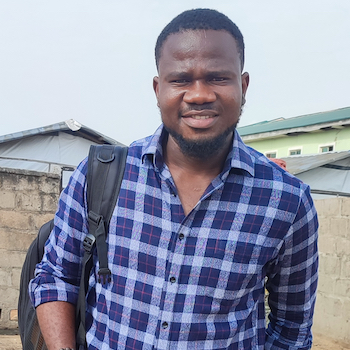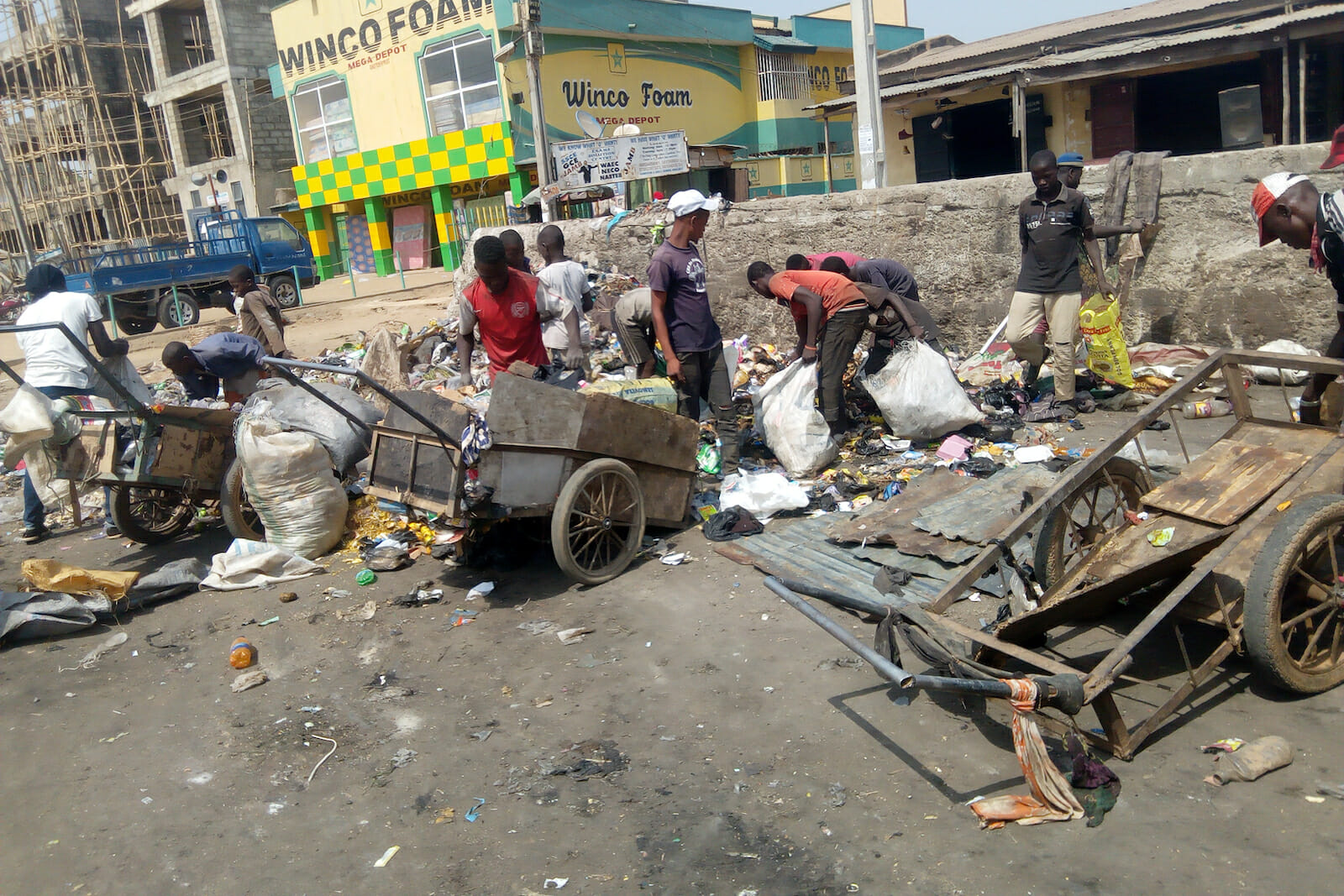
How Nigerians are Surviving by Exchanging Trash for Cash
It has been 9 years since Rosemary Alonna’s husband died after suffering from an illness she does not recall. Before his death in 2010, Alonna and her husband, worked on farms in Ebonyi, a state in southeast Nigeria, after which they got paid sometimes 5,000 nairas and sometimes 10,000 nairas depending on the job they did.
Though they usually did not make enough money, the little they got was okay for them to at least take care of their basic needs- provision of food for themselves and their children. They lived happily together.
But the narrative soon changed after her husband died. She continued to work on various farms. But these jobs were not as regular as they used to be. Soon, she could not take good care of herself. Soon, it was difficult for her to provide food for her kids. Five of them.
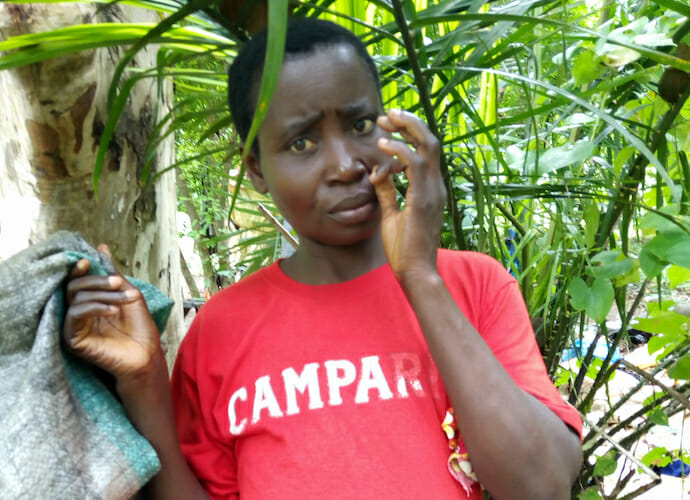
“My brothers asked me to stop working on people’s farms and they promised to help take care of my kids. I stopped, but I knew I needed to go out and look for money so I don’t have to depend completely on them for provision,” she said.
Late in 2018, Alonna decided to come down to Enugu from Ebonyi State with one of her kids, leaving four behind with her brothers. When she arrived Enugu, the search for what to do began. Finding one was not easy for her and to make matters worse, she had no roof over her head.
“For weeks, me and my son slept outside, in people’s shops, usually when they go home having concluded each day’s sales. After some time, we found somewhere to stay with other people who have no homes too,” she said.
Sometimes, she and her son slept without food, except on days when she goes out and finds help.
Much later, in early January, she got some petty jobs where she was making money, too meager to sustain herself and her son. But she kept managing till June when she discovered a certain location characterized by graveyard silence but where people came to sell plastic wastes.
That somewhat changed her story.
“I was just passing by Okpara Square one day when I saw one man washing plastic wastes and when I asked, he said I could make even more money from gathering and selling plastic wastes,” she said.
Increasing poverty rate
Despite having one of the world’s highest economic growth rates, averaging 7.4%, about 90 million people, roughly half Nigeria’s population, live in extreme poverty, according to estimates from the World Data Lab’s Poverty Clock, a figure which is nearly 50% of its estimated 180 million population.
By this figure, Nigeria has comfortably overtaken India, which has 5 times its population, as the country with the most extreme poor people in the world according to a new report by the World Poverty Clock.
The UN set up the Sustainable Development Goals in 2015 and the first of them is to “eradicate extreme poverty for all people everywhere by 2030.” In other to achieve this globally, 90 people need to leave poverty every minute; and to achieve this in Africa, 57 people have to leave every minute; and in Nigeria, 12 people per minute.
But as Nigeria faces a major population boom which will make it the world’s third-largest country by 2050, its problem will likely worsen. The mission to end extreme poverty continues to be at risk.
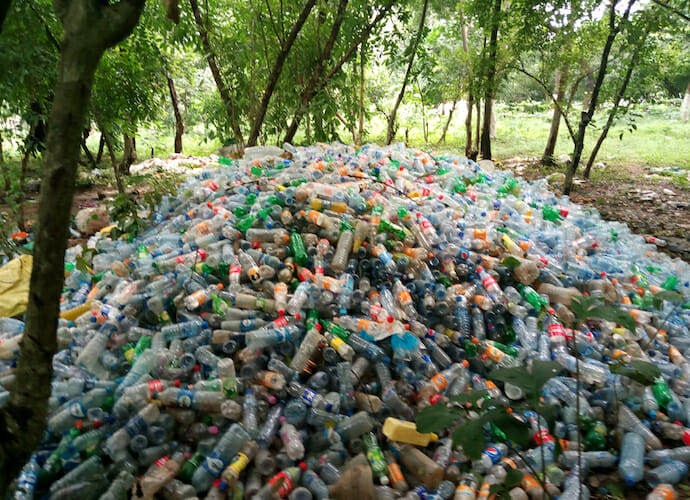
Alonna did not have to think twice. She jumped on the job. Now, she wakes up early every day and visits refuse dumpsites to look for plastic wastes. After gathering the plastics, she brings them to the location where they are counted and she gets paid depending on the number and sizes of plastics she is able to gather for that day.
“With the amount I earn from selling the plastic wastes, I send some money home to my brothers who are helping to take care of my children because I don’t want it to look like I am leaving everything for them to do,” she said.
Alonna wants to go back home. She misses her children a lot. But she has to stay back and work more so she can earn enough money that will help her buy things to take home. “I can’t wait to see my children again,” she said.
Ogbu has been on the job for 4 years
Paul Ogbu is the man in charge of collecting wastes from men and women who collect them as a means of survival. He has been on the job since 2015 and that has helped him take care of his wife and sending his kids to school.
“I began picking wastes because of hardship and the need to work hard to fend for my family. I felt it was way better than stealing people’s property. If I don’t work, no one will help me,” he said at the refuse dumpsite.
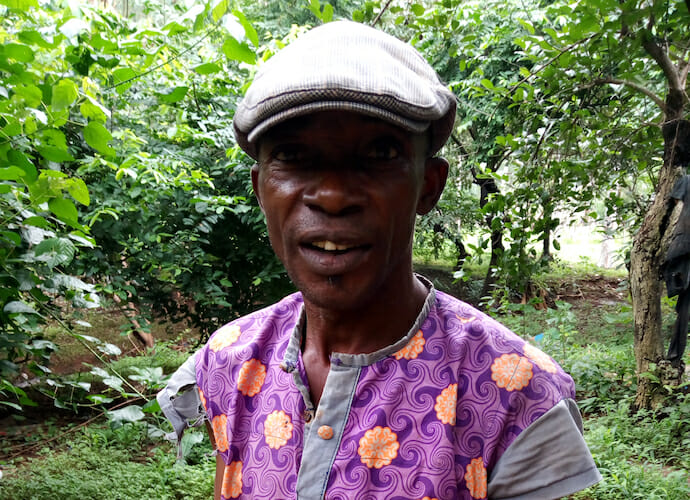
Ogbu said he was doing a lot of menial jobs for people, such as carrying blocks for builders- before he began picking wastes. That was after he discovered that the jobs were not available every day.
“When I work for one day and I don’t get another job to do, the small money I get finishes. Sometimes, I stay for two weeks with nothing to do. At home, it becomes a problem to feed as there is no money,” he said.
Without shame, he visits dustbins and picks wastes every day in the early hours. When he returns, he begins to wash them and after washing them, he takes them to the market where he sells them, depending on the sizes. He sells to people who deal in palm oil, kerosene, and other liquid substances.
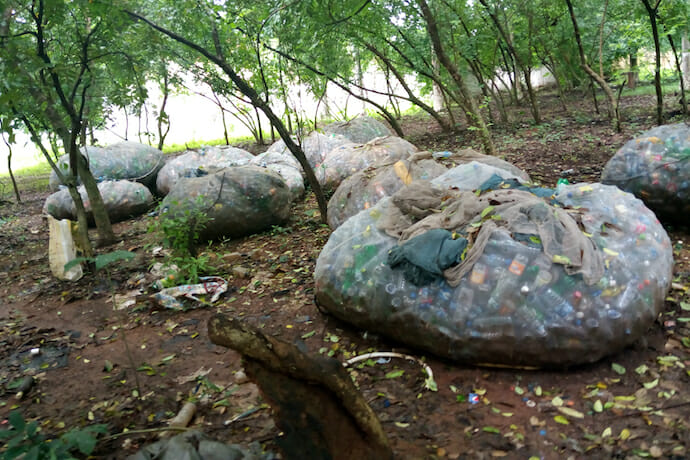
“They come in sizes. We sell the bigger sizes, three for 50 naira to companies that produce nylon and the smaller sizes, 3 for 20 naira to women in the market,” he said, while counting the plastics that had just been brought by Alonna.
Ogbu says he is having to wake up as early as 5 am daily because of how competitive the business is. He tells me that most people even visit dump sites with their wives and kids just to make sure they gather a lot of wastes and some of them still come out in the evening hours.
“Those who work in hotels no longer throw their plastics away. They pack it and we come, they sell to us. I buy some of these plastics you see here. That tells you how serious the business is now these days,” he said, pointing towards the direction where some of his plastics are packed.
Mistaken for lunatic
On several occasions, Ogbu and others like him, have been mistaken for lunatics, partly because of the way they scavenge, with their black bags, hanging around their shoulders and partly because of the location where they gather the plastics after each day’s work.
“Most times when people see us, they think we are mad and they start running away from us. But we don’t care because we just have to do it to survive or go hungry with our families,” he said, now washing some of the plastics.
Ani prefers to pick wastes to his present work
For years, Chukwuebuka Ani has worked as a security guard at Okpara Square, a location used for a series of top events in Enugu State.
Since his father died in 2003, he has been left with the responsibility of taking care of his aged mother who is at home, being the only one at home. His sisters have all been married off.
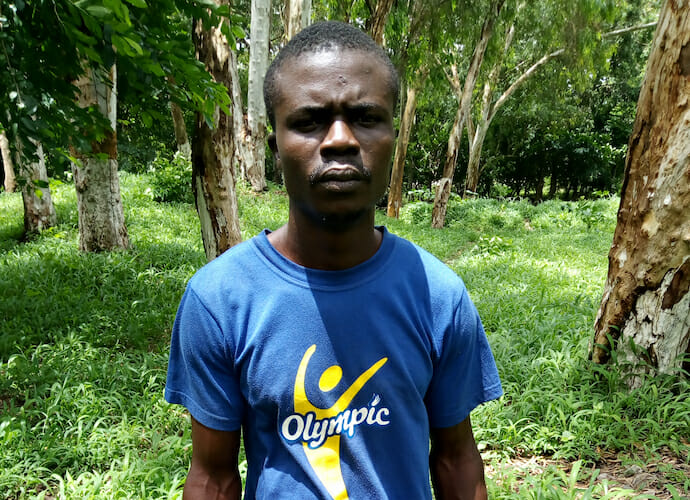
And that means he has to do a lot of jobs to survive and take care of the house. On days when he is not working, he visits dump sites, with a black bag, to pick plastics for sell. Sometimes, he makes 500 and sometimes, he makes 1,000 depending on the amount of plastics he is able to find.
He says he prefers the plastic business to working as a security guard because he determines how much he makes, depending on how hard he works daily on sites.
“The money I am being paid as a security man is too small for me. My salary is 15,000 but after certain reductions, I only go home with as little as 9,000 every month.” I have been thinking of how to stop working and concentrate fully on gathering plastic waste.
Plastics wastes are also helping some Nigerian parents pay fees
In order to deal with the resultant effect arising from the mass production of the over 150 million metric tons of plastics circulating in our oceans right now and which are placing a tremendous burden on aquatic life, a number of initiatives have been introduced.
One such initiatives is the Wecyclers which is a for-profit social enterprise that promotes environmental sustainability, socio-economic development, and community health by providing convenient recycling services in densely populated urban neighbourhoods.
The enterprise gives households a chance to generate value from their wastes and provide a reliable supply of raw materials to the local recycling industry. Wecyclers basically addresses the challenge of urban waste.
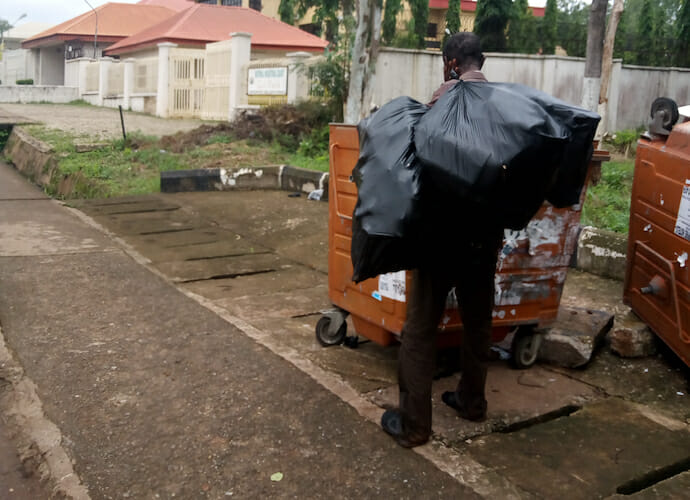
The platform is basically building a low-cost waste management infrastructure using mobile tech and cargo bikes and providing incentives for people to embrace the environmentally friendly habit of recycling their wastes.
Now, a school in Lagos, Morit International School Ajegunle, is accepting plastic bottles in lieu of school fees from parents, an initiative of African Clean-Up Initiative and WeCyclers.
The Recycle Pay project allows parents to use plastic waste as currency to pay their children’s school fees. The scheme has a two-fold positive impact. Families save money while reducing plastic pollution and clean up the city in the process.
The process for the Recycle Pay project involves parents bringing bags of plastic waste to a facility where it is weighed. The weight is then converted into a monetary value, which can be deducted from the amount owed as fees to the school. The collected waste is taken away by a recycling company twice a month.
Hamisu has done this for five years now
The sun was blistering hot that Wednesday in early January, but Hamisu would not budge. As sweat ran down his cheeks, his eyes poured round at a refuse dump site somewhere in Nasarawa, in north central Nigeria.
He wanted to be the first to catch a glimpse of someone coming to throw bags containing wastes, mostly plastics at the site. That is exactly what he has been doing for the past five years since he left Zanfara, in northwest Nigeria.
Every morning, he, alongside his friends gather at the site where they discuss a variety of subjects, from the many troubles facing the country, to how they want to become rich and take care of their parents and how they got to know one another.
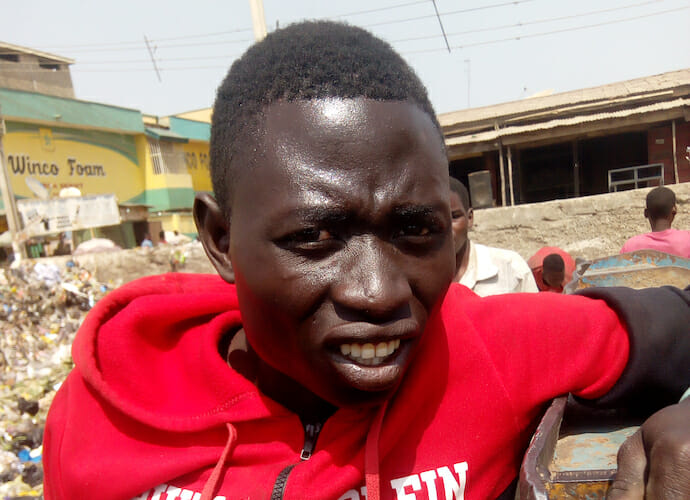
When Hamisu first came to Nasarawa, he sold sachet water on the streets. But after some time, he discovered his friends had some other business they were doing that made them presumably, better than himself.
“I felt the business of gathering wastes was more lucrative and that was how I joined,” he quipped.
Hamisu had to live his parents who have been suffering from no one looking in their direction to come down to Nasarawa. Since then, he has been the one taking care of them and himself along with the little money he makes from selling wastes.
He says the business is much better than stealing. “Because we do not want to become armed robbers, we are forced to come out here every morning and wait for families that come around to dispose of wastes.”
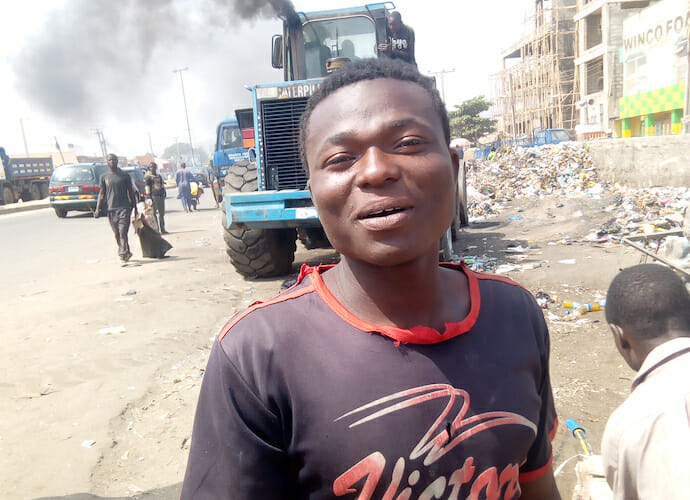
Aliyu Salisu is 22 years. After he lost his parents, he does not recall when exactly, he became confused about what to do with his life. There was no one to help him. He even had to drop out of school because there was no money.
And so, he had to come down to Nasarawa from Plateau, a state in the Nigerian North Central zone, after he was informed by a friend that there was something he could do to survive. He has been doing the business for the past three years now. He does not even intend to return home anymore.
“I do not have anybody to return to. And so, I have decided to remain here, work hard, make money and marry a good wife that will give me children,” he said smiling. “I take care of myself with whatever I make from here.”
Ogbu does not stop believing that one day, his kids will grow up to become great and he will tell them how he took care of them from selling wastes.
